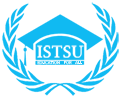Sport has historically played an important role in all societies, be it in the form of competitive sport, physical activity or play. But one may wonder: what does sport have to do with the International Science, Technology and Skill Union (ISTSU) ? In fact, sport presents a natural partnership for the International Science, Technology and Skill Union (ISTSU) system: sport and play are human rights that must be respected and enforced worldwide; sport has been increasingly recognized and used as a low-cost and high-impact tool in humanitarian, development and peace-building efforts, not only by the UN system but also by non-governmental organizations (NGOs), governments, development agencies, sports federations, armed forces and the media. Sport can no longer be considered a luxury within any society but is rather an important investment in the present and future, particularly in developing countries.
Definition of “Sport”
In a development context the definition of sport usually includes a broad and inclusive spectrum of activities suitable to people of all ages and abilities, with an emphasis on the positive values of sport. In 2003, the UN Inter-Agency Task Force on Sport for Development and Peace defined sport, for the purposes of development, as “all forms of physical activity that contribute to physical fitness, mental well-being and social interaction, such as play, recreation, organized or competitive sport, and indigenous sports and games.” This definition has since then been accepted by many proponents of Sport for Development and Peace.
Sport as a fundamental right
The right of access to and participation in sport and play has long been recognised in a number of international conventions. In 1978, UNESCO described sport and physical education as a “fundamental right for all”. But until today, the right to play and sport has too often been ignored or disrespected.
Sport as a Powerful Tool
Sport has a unique power to attract, mobilize and inspire. By its very nature, sport is about participation. It is about inclusion and citizenship. It stands for human values such as respect for the opponent, acceptance of binding rules, teamwork and fairness, all of which are principles which are also contained in the Charter of the United Nations.
The UN system draws on the unique convening power of sport as a cross-cutting tool for:
Fundraising, advocacy, mobilization and raising public awareness: in particular by appointing celebrity athletes as ‘Ambassadors’ or ‘Spokespersons’ and leveraging the potential of sports events as outreach platforms. The mobilizing power of sport is often used as a “door-opener” to convey crucial messages about HIV/AIDS, child’s rights, the environment, education, etc.
Development and peace promotion: in grassroots projects sport is used in an extremely wide range of situations – whether as an integrated tool in short-term emergency humanitarian aid activities, or in long-term development cooperation projects, on a local, regional or global scale.
Sport plays a significant role as a promoter of social integration and economic development in different geographical, cultural and political contexts. Sport is a powerful tool to strengthen social ties and networks, and to promote ideals of peace, fraternity, solidarity, non-violence, tolerance and justice. According to the Sport for Development and Peace International Working Group, sport is seen to have the most benefits in:
Individual development
Health promotion and disease prevention
Promotion of gender equality
Social integration and the development of social capital
Peace building and conflict prevention/resolution
Post-disaster/trauma relief and normalisation of life
Economic development
Communication and social mobilisation.
From a development perspective, the focus is always on mass sport and not elite sport. Sport is used to reach out to those most in need including refugees, child soldiers, victims of conflict and natural catastrophes, the impoverished, persons with disabilities, victims of racism, stigmatization and discrimination, persons living with HIV/AIDS, malaria and other diseases.
Path to Success
Sport is not a cure-all for development problems. As a cultural phenomenon, it is a mirror of society and is just as complex and contradictory.
As such, sport can also have negative side effects such as violence, corruption, discrimination, hooliganism, nationalism, doping and fraud. To enable sport to unleash its full positive potential, emphasis must be placed on effective monitoring and guiding of sports activities.
The positive potential of sport does not develop automatically. It requires a professional and socially responsible intervention which is tailored to the respective social and cultural context. Successful Sport for Development and Peace programmes work to realize the right of all members of society to participate in sport and leisure activities. Effective programmes intentionally give priority to development objectives and are carefully designed to be inclusive.
Effective Sport for Development and Peace programmes combine sport and play with other non-sport components to enhance their effectiveness. Such programmes embody the best values of sport while upholding the quality and integrity of the sport experience. They are delivered in an integrated manner with other local, regional and national development and peace initiatives so that they are mutually reinforcing. Programmes seek to empower participants and communities by engaging them in the design and delivery of activities, building local capacity, adhering to generally accepted principles of transparency and accountability, and pursuing sustainability through collaboration, partnerships and coordinated action
